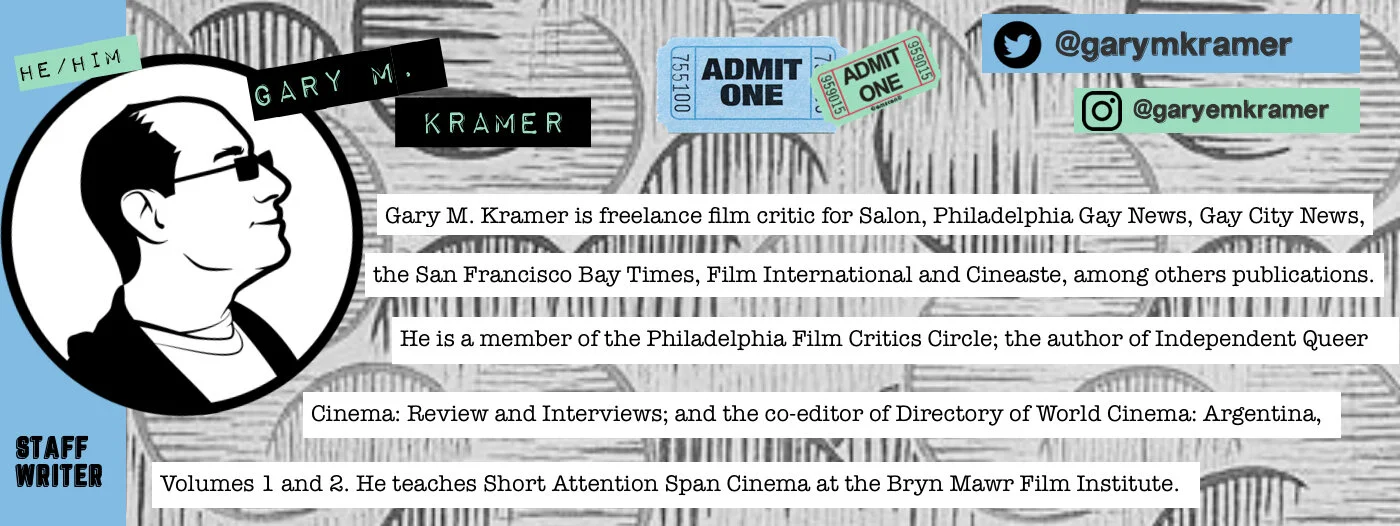COLLECTION sets a melodrama in the seedy world of debt buying
Directed by Marianna Palka
Written by Todd M. Friedman
Starring Alex Pettyfer, Shakira Barrera, Mike Vogel
Runtime: 1 hour, 27 minutes,
Unrated
In theaters and digital September 17
by Gary M. Kramer, Staff Writer
The shady B-movie Collection tackles the thorny issue of debt, focusing on the unregulated practice of folks who profit off of chasing other people’s money. Written by Todd M. Friedman, and directed by Marianna Palka, the film explains the set up: companies buy debt from banks for pennies on the dollar to make real coin if they can collect what is owed. (Fun Fact: It’s a $15 billion industry). Collecting, of course, is a dirty business, and the opening scene has Brandon (Alex Pettyfer, who co-produced) bleeding from the head before he jumps in a car to chase after Christina (Shakira Barrera). Collection then jumps back in time to show how the characters arrived at this point.
Brandon co-owns AMG Receivables, a call center, with his best friend Ross (Mike Vogel). Ross is a mouthy ex-con with attitude, while Brandon is smarting from the death of his son. When Brandon witnesses Sean (Jacques Colimon) having a fight with his father (Chip Carriere) at his country club, he hires Sean to work at AMG. However, because Brandon starts getting romantically involved with Christina, a stripper and single mother, Ross has to show Sean how to hit a mark’s vulnerability. Sean is soon collecting money for arguably the largest portfolios in receivables history. (This happens practically overnight, which may strain credibility).
Collection features some interesting characters, but it spreads itself too thin telling all the different stories. Brandon’s relationship with Christina seems facile—even if he hopes to soothe his guilt over his dead son by playing surrogate father. Showing the backstory involving Brandon’s wife and child is cheesy and unnecessary. Equally clunky are the multiple scenes of Brandon drinking—and always with the same glass tumbler, regardless of the location! (One could have a drinking game out of this, actually). Moreover, while Brandon is troubled, Pettyfer is quite stiff in his role. Even when he is supposed to be motivating his staff to collect big money, he is not very inspiring or charismatic.
Christina likely appreciates having Brandon in her life, because her husband Mario (Joseph Julian Soria) is serving two consecutive life sentences, and she is in debt. Collection features scenes of Brandon taking Christina and her son Gio (Ashton Lubart) out for a meal, or to the movies. The relationship, however, mostly feels contrived. Once Christina’s debt is revealed—she is the big fish AMG hopes to catch—there is just a brief suggestion that Brandon is playing Christina to cash in on her. Barrera does what she can to make her mostly underwritten role sympathetic.
The most interesting storyline may be Sean’s, because he is an ex-con who has an epicly awkward public fight with his father before becoming an instantly successful collector. Colimon is best when he displays some cockiness, but the filmmakers don’t know what to do with him after he hit his stride, which feels like a missed opportunity.
At least Collection offers Ross to show how toxic this seedy world is. An alpha male who must have been rejected by The Wolf of Wall Street, Ross peppers his speech with cringe-inducing racist, sexist, antisemitic, and vulgar remarks, illustrating just how oily these people are. But Ross also suffers from having an enlarged heart—cue the melodrama! Nevertheless, Vogel is the best thing in the film because he relishes playing this slimy villain with his mirrored sunglasses and shirts as loud as he is. The film’s blood sugar (and viewers’ blood pressure) drops whenever he is off screen.
Collection is a topical film that casts an eye on an interesting subject. It is a shame the filmmakers could not have made something stronger, or more insightful. Whenever there are video or audio clips of the debtors, the film glosses over the underlying economic issues that cause folks to go into deep debt. To their credit, the filmmakers thankfully don’t sensationalize the issues. And the film could have worked if the romantic narrative had more passion (or believability), or that the collection angle would feature more dramatic tension or lean into the gritty underbelly of this insidious, unsavory world. Instead, the film is like “bad paper”: it has a high risk of default.


